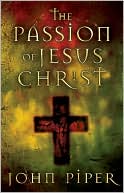A Bit Of Humble Pie
Here are two disclaimers from my previous post, entitled Of Earthquakes, Passover, and Good Friday.
Calendar Clarifications
Thinking more carefully through the Passover calendars of Christians and Jews, I realized that one possible reason for the differences is that the Christians probably wanted Resurrection Sunday to always be preceded by a Good Friday, which was always after Passover, which would have been on Thursday.
However, as the Jewish Calendar is lunar, the dating of Passover can change which day of the week it is celebrated on. This means that in my earlier post, I was not completely accurate. If Passover is celebrated by the Jewish people on Saturday the 19th, 2008, then according to proper tradition, this would correspond to the Last Supper, and so this year it would not be Good Friday, but rather Good Sunday, and the resurrection would have taken place on Tuesday.
So, all I can do is apologize for instituting my Christian paradigm for always wanting to date Jesus’ death on a Friday just because that is what the New Testament teaches happened on that particular Passover.
So even if the earthquake occurred only on “our” Good Friday, at least our family saw a connection and thought more deeply about the meaning of Christ’s death—and that is a good thing.
The Passion Of The Christ
Also, I wanted to make clear my opinion over the controversies surrounding the movie “The Passion Of The Christ”.
- Although Mel Gibson has many good qualities, he, like all of us, has failings and we should not put him on a pedestal.
- Certainly, as one who appreciates the Jewish traditions, I condemn the anti-Semitic stances taken by Mel Gibson’s father, and if any of these lurk in Mel Gibson’s heart, he needs to root them out.
- Even though I think this is a good film, I do not think it perfect. It has many inaccuracies which need to be overlooked in order to see the truths of Christ’s suffering on our behalf.
- I understand the difficulties that Jews have with this film. The choice to include some of the Jewish people stating culpability for Christ’s death is deplorable not from an accuracy standpoint—the New Testament does include these words—but from a historical one because Christians have used these words in the past to cruelly persecute the Jewish people.
- However, one must keep in mind that Mel Gibson chose, after discussions with Jewish leaders not to translate those words on screen. As well, the film highlights Jesus’ own words from John 10:18, saying “No one takes it from me, but I lay it down of my own accord. I have authority to lay it down and authority to take it up again. This command I received from my Father.”
This last point is explained best by John Piper in his excellent book “The Passion Of Jesus Christ“, which came out after the movie to give fifty reasons why Christ died. Here is what the back of the book says:
The most important questions anyone can ask are: Why was Jesus Christ crucified? Why did he suffer so much? What has this to do with me? Finally, who sent him to his death? The answer to the last question is that God did. Jesus was God’s son. The suffering was unsurpassed, but the whole message of the Bible leads to this answer.

So the point that I am trying to make is that I do not believe it is Biblical, nor right, to say that the Jewish people as a body hold responsibility for the death of Jesus. Where the New Testament speaks of this, it always has the limited meaning “The Jewish Leaders”, which was a very small group.
It must be understood that the death of Jesus was planned long before any of these people were born. The death of Jesus was God’s loving gift promised through his covenants thousands of years before. The death of Jesus was God’s design, and as Hebrews 12:2 says:
Let us fix our eyes on Jesus, the author and perfecter of our faith, who for the joy set before him endured the cross, scorning its shame, and sat down at the right hand of the throne of God.
